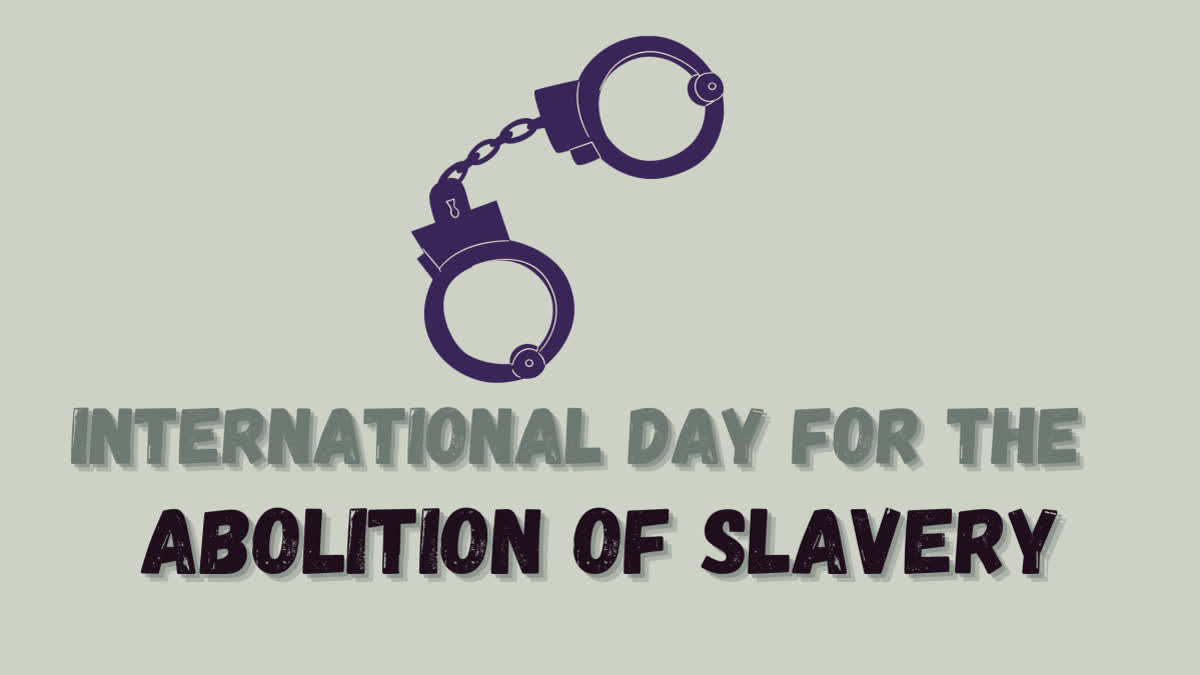Hyderabad: The International Day for the Abolition of Slavery stands as a global reminder of humanity's commitment to eradicate slavery in all its forms. The day is observed annually on December 2 and serves as a poignant reminder of the atrocities inflicted upon millions throughout history and underscores the ongoing fight against modern slavery.
History and significance- The roots of the International Day for the Abolition of Slavery can be traced back to December 2, 1949, when the United Nations General Assembly adopted the 'Convention for the Suppression of the Traffic in Persons and of the Others'. This pivotal moment marked the international community's collective effort to combat slavery, recognising it as a violation of human rights and dignity. The Assembly declared 2004 to be the International Year to Commemorate the Struggle against Slavery and its Abolition by resolution 57/195 of December 18, 2002
Theme- The theme for this year's International Day for the Abolition of Slavery is “Fighting slavery's legacy of racism through transformative education”.
Objective and Background- The primary objective of this day is to raise awareness about the persistence of various forms of modern slavery and to mobilise concerted action towards its elimination. Slavery, in its contemporary manifestations, takes multifaceted forms, often hidden in plain sight. The practice of slavery persists in the shadows of society, exploiting vulnerable populations across the globe.
Main forms of modern slavery- Three main modern forms of slavery exist in the society, which include, forced labor, child labor, and trafficking. Forced labor forces individuals to work under duress, deprived of their autonomy, and subjected to exploitation. Child labor deprives children of their childhood, education, and basic rights, forcing them into hazardous work conditions. Trafficking involves the recruitment, transportation, and exploitation of individuals through coercion or deceit, perpetuating a cycle of exploration and abuse.
Forced labour ensnares millions, predominantly in industries such as agriculture, manufacturing, construction, and domestic work. Workers endure deplorable conditions, often trapped by debt bondage or threats of violence.
Child labour, a global concern, denies millions of children the chance to learn and grow. Instead, they toil in hazardous conditions, perpetuating cycles of poverty and robbing them of their fundamental rights.
Forced labour ensnares millions, predominantly in industries such as agriculture, manufacturing, construction, and domestic work. Workers endure deplorable conditions, often trapped by debt bondage or threats of violence.
Trafficking, a lucrative criminal enterprise, preys on vulnerabilities, often targeting women and children. Victims are coerced into prostitution, forced labor, or other exploitative situations, suffering physical and psychological trauma.
The International Day for the Abolition of Slavery serves as a powerful platform to advocate for the rights of those ensnared in modern-day slavery. It demands global solidarity, urging governments, organisations, and individuals to take necessary actions to eradicate this abhorrent practice. Ending slavery in all its forms requires a comprehensive approach involving legislation, enforcement, education, and support systems for survivors. Together, as a global community, we must strive to create a world where freedom and dignity prevail over exploitation and oppression.




